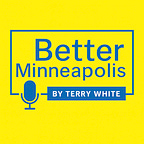
How to Play Principal Clarinet
As a college freshman, my goals were, at best, unspecific. They boiled down to becoming a writer someday. When my uncle asked how I planned to make a living, I boldly told him that I would dig ditches if that’s what it took. Five years later, I fulfilled that prophecy, working for a friend’s landscaping business in Santa Fe. Graduating with a B.A in English Literature and a minor in Ceramics, I quickly learned that my chosen fields weren’t going to be a fast track to career success. For me, goal setting was an afterthought.
It took a significant life event before I decided that I’d smoked enough pot, tended enough bar, and met enough people who had changed their names to Moon Beam, Sage, or Bodhi. It was time to set some real goals and move forward with my life.
Contrast this with Jacob, the guy who lived across the hall from me freshman year. Jacob had clear, definitive goals. He was determined to play principal clarinet and go to law school. Every day, he practiced the clarinet for at least two hours and studied even more. While others stumbled drunkenly through the dorm hallways late at night, Jacob was either in bed or at his desk, studying.
Jacob wasn’t the smartest person I knew—he was smart, but not brilliant. What set him apart was his focus. I’d bet there was a journal in his room with his goals meticulously written out, alongside deadlines for achieving them. We couldn’t have been more different. After moving sophomore year, we lost touch.
To this day, I’d be shocked if Jacob didn’t achieve everything he set out to do. If you told me he never made principal clarinet or didn’t become a successful lawyer, my first question would be: Was he in a terrible accident? To me, Jacob seemed to have a magical ability—the power to focus, define what he wanted, and pursue it relentlessly.
Jacob was partly on my mind when I invited Kurt Nelson for this year-end discussion. I hoped he could help demystify the process of goal setting—a challenge not just for me but for many others. Santa Fe had no shortage of rudderless people—wanderers who found themselves snagged there, halfway between somewhere and something else.
Introduction
For our last newsletter of 2024, we spoke with Kurt Nelson, founder of the Lantern Group. His business is based in the Whittier neighborhood of Minneapolis, where he has been a resident for approximately 30 years. Kurt holds a PhD in Industrial-Organizational Psychology, a field that examines how people and organizations work together. The Lantern Group collaborates with organizations on goal-setting, motivation, and engagement. They have also published two volumes of The Brain/Shift Journal to help individuals achieve their goals and enhance productivity. It felt fitting to close out the year by discussing how to accomplish our goals for 2025 with an expert in the field.
In addition to running his business, Kurt co-founded the Behavioral Grooves podcast with Tim Houlihan, which now boasts over 450 episodes, and they publish a monthly newsletter called Groove Snacks.
This conversation encouraged us to reflect on our aspirations for the year ahead. Intentional reflection on what we hope to achieve is a crucial starting point. After all, even the best goal-setting strategies are meaningless without knowing what we want.

Below is a brief overview of our conversation:
The Meat of It
Kurt delves into the science of effective goal setting, emphasizing the importance of creating clear, specific, and measurable objectives.
He highlights the need to balance ambitious, stretch-goals with achievable milestones to maintain motivation.
A key focus is on the alignment between personal values, intrinsic motivations, and the goals themselves. Kurt explains that when goals resonate with individual or organizational priorities, they are more likely to succeed.
Challenges in Goal Implementation
Kurt identifies common pitfalls in goal setting, such as setting overly ambitious targets without adequate planning or support.
He underscores the risks of focusing solely on outcomes without considering the processes and habits needed to achieve them.
Procrastination, lack of accountability, and failure to adapt to changing circumstances are also highlighted as barriers to success.
Kurt offers strategies to address these issues, such as regular progress reviews, incremental adjustments, and cultivating a supportive environment.
Practical Applications
The discussion includes actionable advice for individuals and organizations looking to set goals for 2025.
Kurt recommends starting with a self-assessment to identify areas of improvement and potential growth.
He encourages breaking down larger goals into manageable steps, employing behavioral science techniques like habit stacking and positive reinforcement.
For organizations, he suggests fostering a culture that values goal alignment and providing tools and resources to support employees’ progress.
Closing Thoughts
Kurt concludes by emphasizing that goal setting is a dynamic and iterative process. Goals should evolve in response to new insights and circumstances.
He advocates for celebrating small victories along the way to maintain morale and build momentum.
Kurt’s final advice is to view 2025 as an opportunity to experiment with new approaches, learn from challenges, and focus on meaningful progress rather than perfection.











